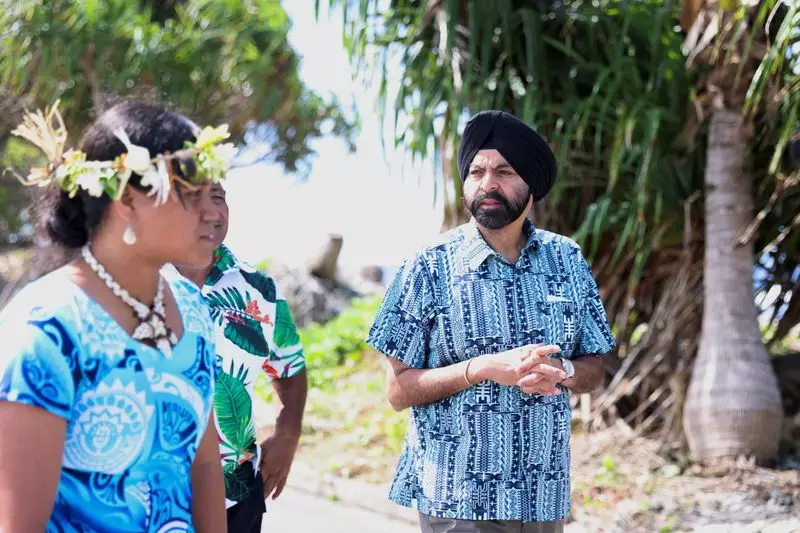World Bank President Ajay Banga recently expressed the need for the global lender to work faster and simplify its processes in response to a world experiencing greater polarization. Banga’s remarks, following his visit to 27 countries from Peru to Tuvalu, highlighted the challenges faced by nations around the world in meeting the requirements of the World Bank. While the aspirations of people are universal, the current global landscape is marked by extremes and polarization, necessitating a more agile and impactful approach from the World Bank.
During his visit to the South Pacific, Banga encountered firsthand the challenges faced by small island states such as Tuvalu and Fiji. These countries often struggle to meet the stringent requirements set by the World Bank, leading to delays in critical projects. In Fiji, Banga witnessed the strain on health clinics grappling with rising rates of non-communicable diseases like diabetes, underscoring the importance of the bank’s focus on job creation and affordable healthcare. The Pacific Islands, being the region most impacted by warming oceans, rely heavily on aid, making them vulnerable to shifts in global economic trends.
Banga highlighted the reforms undertaken by the World Bank in the past year, aimed at streamlining processes and improving efficiency. These reforms include reducing the bank’s goals from 150 to 22 items, cutting approval times for projects by an average of three months, and finding innovative ways to increase lending by $120 billion over 10 years. The focus on simplification and speed is crucial in addressing the pressing needs of countries around the world, particularly in the face of complex challenges like climate change, inequality, and fragility.
One of the major challenges highlighted by Banga is the looming gap between the 1.2 billion young people in emerging markets expected to enter the workforce in the next decade and the projected availability of jobs, estimated at 420 million. Bridging this gap requires concerted efforts from governments, philanthropies, and multilateral development banks to create opportunities for young people and foster economic growth. The recent replenishment of the International Development Association (IDA) by the World Bank’s shareholders in December was a critical step in this direction, enabling the bank to continue its support for developing countries.
The World Bank’s role in a polarized and fast-changing world requires it to adapt to the evolving needs of countries and deliver solutions that are timely and impactful. By streamlining its processes, focusing on key priorities like job creation and healthcare, and collaborating with various stakeholders, the World Bank can enhance its effectiveness and make a meaningful difference in the lives of people around the world.

